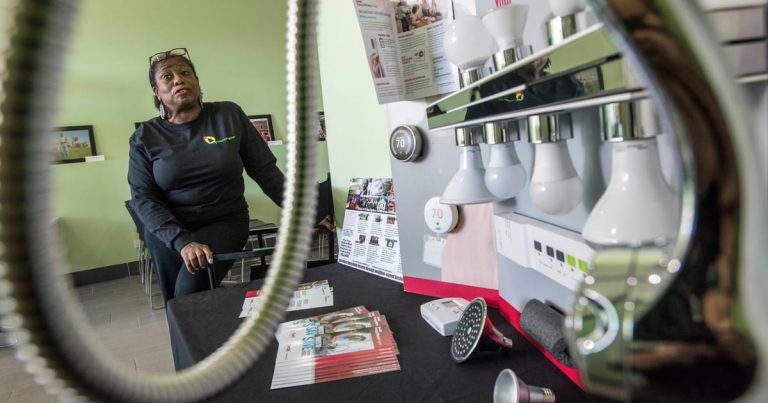Renters, condominium owners, and homeowners unable to install solar will be co-owners of the solar co-op and accompanying profit sharing, and will have a voice in management. The co-op will also provide workforce training and capacity development, and present residents with a hands-on opportunity to help create an equitable clean energy transition that protects the environment in their own communities.
“This will ensure that the projects are completed and thereby demonstrate the power of solar sovereignty for ownership and wealth building by Blacks in distressed Black communities,” said Rev. Tony Pierce, GEJC board member and CEO of Sun Bright Energy, in a news release.
The co-op’s success in the Illinois Shines competition brings it one step closer to delivering the benefits of the burgeoning clean energy transition in Illinois to underserved and marginalized communities, which have suffered the double whammy of disinvestment and disproportionate detrimental impact of the effects of climate change.
“Given that many environmental justice communities like mine, in the far Southeast Side of Chicago, bear the brunt of climate change, this is a great opportunity to begin to undo and heal our communities from that harm,” said Olga Bautista, GEJC board member and co-executive director of the Southeast Environmental Task Force, in a news release.
GEJC is also supported by partners at Cooperative Energy Futures, a Minnesota-based member-owned clean energy cooperative that has developed similar models of equitable community ownership of solar projects.
“We’re really excited to be supporting GEJC in bringing community-owned solar to GEJC’s local communities in Illinois,” said Cooperative Energy Futures General Manager Timothy DenHerder-Thomas in a news release. “Through our co-op in Minnesota, we’ve seen the power of this model in uniting communities around a clean energy future that works for renters and low-income households and makes sure local residents own and get the benefits too.”
The three GEJC community solar projects selected by the Illinois Power Agency will be presented to the Illinois Commerce Commission, the Illinois public utility regulatory body, in January 2024 for final approval for renewable energy credit contracts.
While this award represents a substantial win, it only represents one piece of ongoing work for Blacks in Green, whose mission Davis sums up as the establishment of a “walk to work, walk to shop, walk to learn, walk to play village, where African Americans own the businesses, own the land, and live the conservation lifestyle.”
“We are determined to expand our clean energy businesses.” Davis said. “That means we’re working to get funding so that we can work closely with our neighbors to educate, engage, train, mobilize, finance, and otherwise support ourselves in the design and implementation of local living economies in energy, horticulture, housing, tourism, and waste.
“We are here to, for example, decarbonize all of the buildings in our Sustainable Square Mile of West Woodlawn. And that’s no small feat to decarbonize the walkable village at scale,” Davis continued, saying that residents need to undertake weatherization measures and other costs before taking full advantage of clean energy technology.
Blacks in Green’s mission also includes work on a virtual power plant and clean energy microgrid, affordable energy legislation, and geothermal power.
“So, we’re on the ground taking all of the access points to, along the way to creating a triumph for ourselves in the tradition of our great migration ancestors,” Davis said.
And while she recognizes the importance and even necessity of philanthropy, Davis has no intention of relying solely on donors.
“We are looking to be our own emergency management system. At the end of the day when the ‘you know what’ hits the fan, we want our communities, our walkable villages to be ready not only because they have greater health and wealth, but because they have been in the process of creating an oasis of resilience against the harms of the climate crisis” Davis said. “That’s what we’re here to do.”




